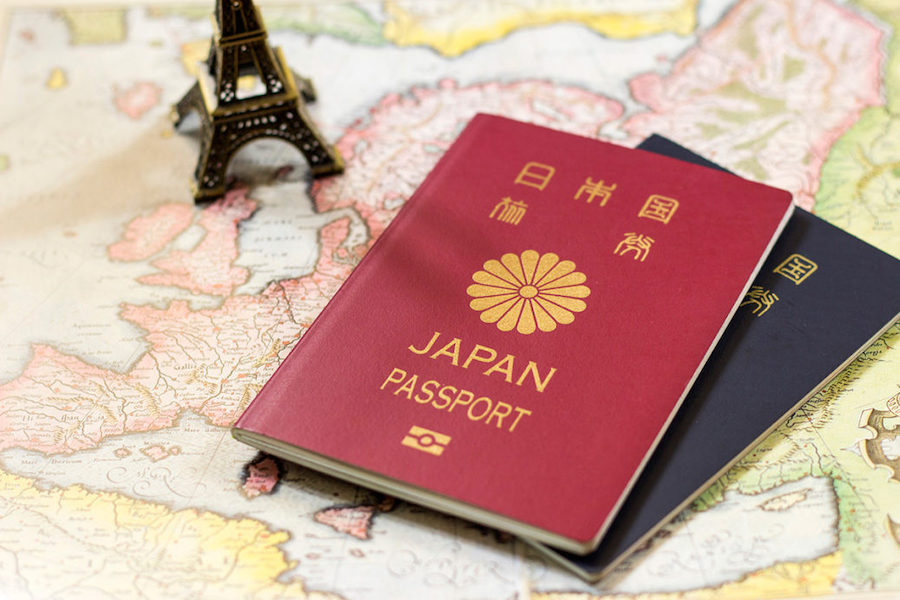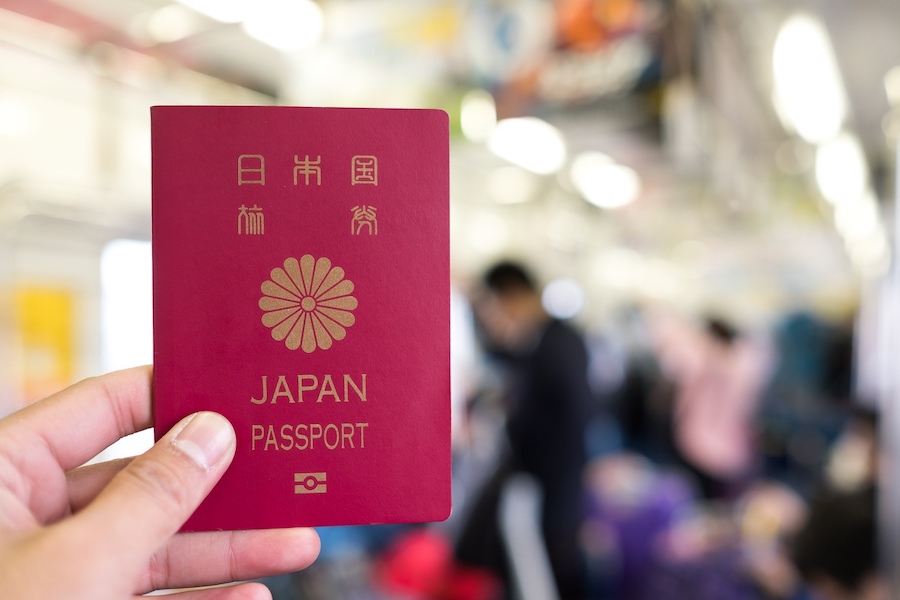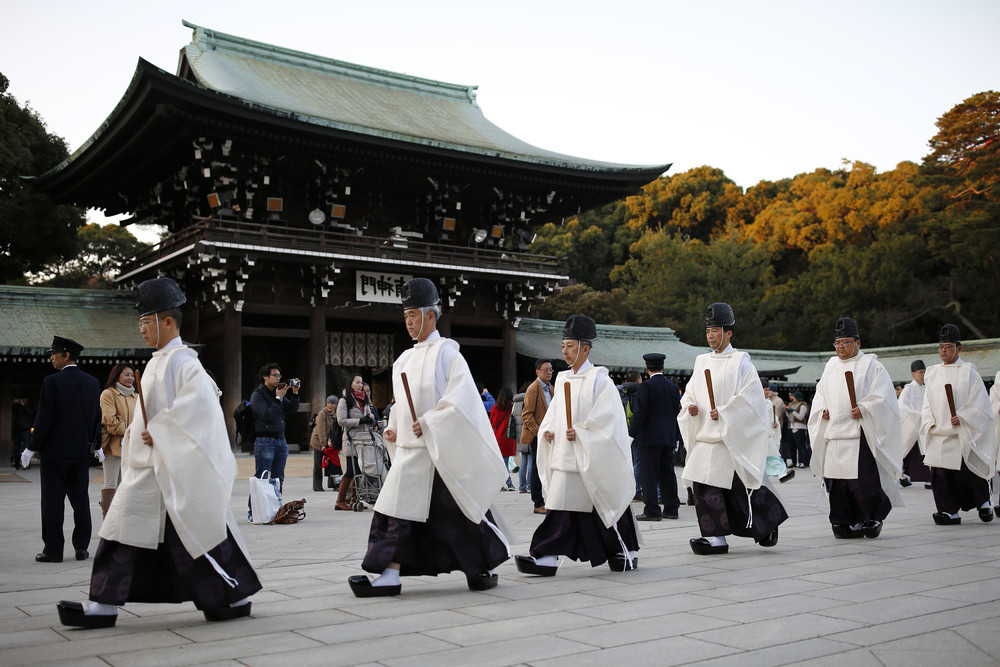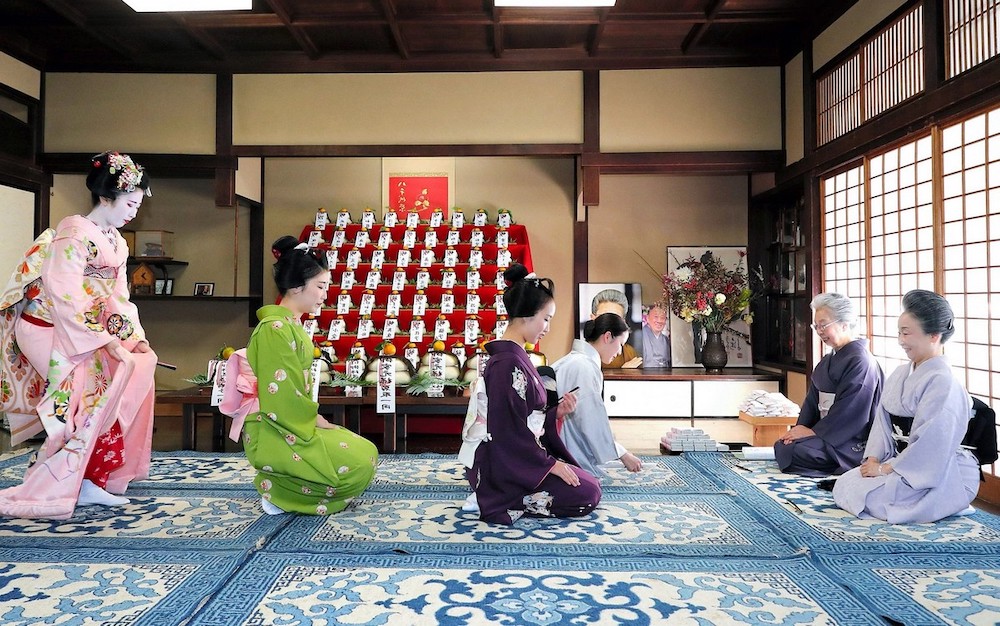How to get a residence permit in Japan?

Many representatives of the former Soviet Union are now looking for a better life outside of their homeland. Some of them go to the countries of near and far abroad for the purpose of studying, employment and living. This article will be of interest to those who want to become a part of Japanese society.
Modern Japan should be perceived not only as a Land of the rising sun, but also as a very developed state. In this state, almost all areas of human activity are developing. The discoveries of Japanese scientists are on the verge of fiction, and medical services are considered the best in the whole world. It is for this reason that many people want to be in Japan and become its citizens. As a rule, immigrants are driven by the desire to realize their own potential, get acquainted with the traditions and culture of the Japanese, taste the dishes of exotic cuisine, etc.
Despite the fact that the world community is integrating, Japan is still a complete mystery to many. Nowadays, it is extremely difficult to get a job in this country, as well as the situation with obtaining a residence permit and citizenship. The authorities have a strict immigration policy towards foreigners.
Japan is a small country in the truest sense of the word. The population is approximately 127 million Japanese, all of whom occupy an area of 338 thousand square meters. This country is characterized by a very high level of population density, almost 336.3 people per 1 square meter. To understand how much this is, for comparison, you can take Russia, where 8.39 people live on 1 square meter.

It is for this reason that Japan is reluctant to let foreigners into its territory. To a greater extent, this applies to unskilled personnel. This is reflected in the fact that Japanese authorities rarely approve visas for unskilled workers. The lowest-skilled personnel are considered to be technical interns who have arrived in the country to gain real-world experience. They can stay in the country for no more than 3 years. All other candidates must be highly sought-after specialists.
In the event that a highly qualified employee who is fluent in Japanese and English wants to enter the country, any company will be happy to see this employee in its staff, respectively, the government will give the go-ahead for entry. Japan is interested in new workers, but only those who have a high level of qualification, because the development of the country as a whole depends on this. Highly qualified employees are selected according to a special system, if the candidate has extensive experience and excellent knowledge of the industry, he can get advantages in obtaining permanent residence.
The visa is valid for 5 years, the specialist can bring a family to the country, including a spouse and children. To get the HSFP status, a specialist needs to score about 70 points. It evaluates work experience in the industry, earnings, education, the level of knowledge of the Japanese language, the presence of an academic degree that corresponds to Japanese, etc. In Japan, they are very happy to accept specialists for scientific research, technical or specialized work, as well as business management. At the moment, Japan is showing interest in medical professionals who can take care of the aging population, and in construction professions.
To apply for a visa, documents must be submitted not only by visitors, but also by the country that will accept them. In simpler terms, the Japanese authorities should first send you a letter stating the reason for visiting the country. Until you have a package of documents from the host country, you can not contact the consulate. The visa application process takes an average of 4 days. Upon arrival in the country, you will be fingerprinted and photographed for the local database.
Currently, there are several options available to obtain a residence permit in Japan and citizenship.
How to get permanent residence in Japan?

According to the Human Development Index, Japan is among the top ten leaders in terms of living standards. When compiling the rating, the following data was taken into account:
- literacy;
- standard of living of the society;
- security indicator;
- the level of gross domestic product per unit of population;
- equal rights in society;
- consumer capacity;
- higher education level, etc.
Permanent residence in Japan is a tempting idea. However, you should know that it will not be easy to stay in this state due to the tightening of immigration policy. For a foreigner who wants to apply for permanent residence in Japan, very high requirements are imposed. He will only become a resident if the Japanese authorities are interested in him. To do this, a person must have permanently resided in Japan for more than 10 years, work or have a 5+visa. In addition, the candidate should not have any problems with the law or with health.
If you are a foreigner and plan to stay in Japan for more than 90 days, you will need to register with your local municipality. You must come to the local authorities in person with the documents. The only exceptions are those cases when the applicant is under the age of 16, and his relatives can register him.
Even a baby born in Japan must be registered within 60 days. Of course, the kid will not automatically receive Japanese citizenship, he will be issued a certificate of registration of a foreigner. As a rule, the document is issued 2 weeks after the application is submitted. Persons who are under the age of 16 receive a certificate immediately.
The reasons for obtaining permanent residence in Japan today can be study, work, official marriage with a Japanese person, reunification with relatives, refugee status, birthright, investment.
Japanese citizenship is automatically awarded to a newborn who was born in the country, regardless of whether a marriage is registered or not. In situations where a baby is born abroad, and one of its parents is a resident of Japan, citizenship must be issued within 3 months from the moment the baby is born. Also, a baby whose parents could not be identified can become a Japanese citizen.
Reuniting with relatives means moving to close relatives, in particular, to children, parents or a spouse. This group can be divided into those who visit relatives who work on a work visa or HSFP, and those who have relatives who are citizens or permanent residents of the island state. If you visit an employee, you can live with them for 5 years, but you are not allowed to work. If your partner has an HSFP visa, then you can engage in activities that are not prohibited by law.
A formal marriage will significantly speed up and simplify the procedure for obtaining citizenship. A migrant will immediately receive a residence permit, and after 5 years, they can file a petition for citizenship. If the spouses file for divorce during this time, the migrant will lose the opportunity to apply for citizenship, and they will also be deported from the country. A child born in an international marriage automatically receives dual citizenship. But when he comes of age, he will have to decide on the citizenship of the country, since double standards are prohibited in Japan.

A residence permit for managers and investors in Japan has a number of nuances. It is not possible to acquire a residence permit just for investing in the country’s economy or business. The authorities are demanding of entrepreneurs and managers, in particular, you will have to show real work. To get a visa, an investor and entrepreneur need to start a business activity in the country, have an office or production facilities, and hire 2 full-time employees. To start your own business in Japan, you will need more than 50 thousand dollars, and this amount of capital investment will need to be constantly maintained. It should be noted that the visa is directly related to business activities, so you will not be able to work for hire or engage in other commercial activities. For such cases, you will need to issue a separate permit or change the status.
When applying to an educational institution in Japan, a visa is issued very simply. In addition, it can be extended throughout the entire training process. The validity period of a student visa starts from 3 months and lasts up to 4 years. Upon completion of the educational process, a young person can obtain Japanese citizenship, provided that they express a desire to work in a Japanese company.
In general, visas of highly qualified specialists are approved. Engineers, programmers, doctors, etc. are welcome here. After staying in the country for more than 5 years on a work visa, a migrant can apply for a Japanese passport. If you do not speak Japanese, it will be impossible to get a job in Japan, you will need to learn the language. However, if you are lucky enough to find an official job, you can first renew your visa and then apply for permanent residence later.
Japan will grant you refugee status only if you prove to the Japanese authorities that you are being persecuted by the state in your homeland. Refugee status is granted only for 3 years. In addition, this status can only be granted to 30 people per year. This option is absolutely not suitable for migrants from Russia, since the country has a calm political and economic situation, which cannot be said about other states.
Each of the proposed options has certain nuances. It is necessary to pay close attention to the processing of all visa papers, as Japan is strong in bureaucratic matters. Only those who do not have a criminal record and have not been previously deported from the country will receive a residence permit in Japan.
In many situations, obtaining Japanese citizenship is much more difficult than obtaining a Japanese residence permit. For many, this task becomes almost impossible, as Japan is reluctant to grant foreigners resident status.
How do I get Japanese citizenship?

Japanese citizenship can be obtained by any foreigner who has officially lived in Japan for more than 5 years. The applicant must be at least 20 years old. The applicant must be legally capable and have no criminal record. If they have committed any offenses during their stay in the country, they may be denied citizenship.
The applicant may be stateless. In cases where he has citizenship of another country, he will need to renounce it. In addition, the migrant must officially confirm financial security, submit a certificate of income or other documents confirming them. Another important aspect is the excellent knowledge of the Japanese language.
The application and other documents are submitted to the immigration service. In addition, the applicant will need to pass an interview with an employee of the migration service. And this meeting may not be the only one. All this time, the inspector will check your trustworthiness. A representative of the government can talk to your neighbors, employers, come to your place of residence, etc.
Then there will be a test of knowledge of the Japanese language. The future migrant must be able to read, translate, perceive speech, and show communication skills.
To start the integration process, you need to have 25 thousand dollars. As you have already understood, obtaining a Japanese passport largely depends on the subjective opinion of the inspector. But if you have real estate properties in Japan, a health insurance policy, or a pension certificate, then the inspector will most likely give a positive answer to the application for citizenship.
The standard package of documents includes:
- application form in Japanese;
- foreign passport;
- 2 photos in size 4.5*4.5 cm;
- Residence PERMIT;
- birth certificate;
- certificate of income and financial security;
- medical certificate;
- insurance policy;
- certificate confirming passing the Japanese language exam.
Of course, the migration service inspector may find this package of documents incomplete, and request additional documents from the applicant, for example, a certificate of family composition, an employment agreement, etc.
The process of obtaining citizenship in Japan is very troublesome and long. To date, there are no official deadlines for obtaining citizenship. This process can last almost a year. This period can be extended for another 6 months if the Japanese authorities have new questions for the applicant.
The applicant must officially renounce their existing citizenship. This procedure is paid in many countries, for example, in Russia the cost of the service is 3-3. 5 thousand rubles. In addition, the candidate will need to enroll in Japanese language courses, which can last 2-3 years. The average tuition fee is 1000 yen per year.
As we have already said, Japan prohibits dual citizenship, but there are some exceptions to the rules. If a person was granted dual citizenship at birth, the Japanese authorities retain this status until they reach the age of majority.
Dual citizenship is granted to an infant who is born in a mixed marriage. First of all, the child receives Japanese citizenship. However, parents may request that the child retain the right to dual citizenship until the age of majority. At the age of 18, this child must decide in 2 years which country he wants to remain a citizen of.














Leave a Reply